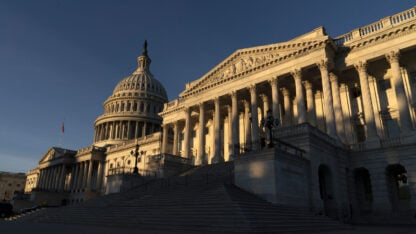State lawmakers from both sides of the aisle want Georgia to ratify the Equal Rights Amendment to the U.S. Constitution.
They’ve introduced two bipartisan resolutions this week urging the state sign on to the measure that offers equal protections to all Americans regardless of sex.
“We need this amendment so that all women are treated the same as men no matter where they live in this great country,” said state senator Zahra Karinshak, a Democrat sponsoring one of the resolutions, at a press conference Wednesday.
“The Equal Rights Amendment is necessary to clarify countless ambiguities and inconsistencies in our legal system across our nation.”
The U.S. Congress first passed the Equal Rights Amendment, or ERA, back in the 1970s, but it didn’t get the support it needed from states at the time to become the law of the land.
Thirty-eight states need to approve the amendment to meet to the threshold needed to add it to the Constitution. Illinois became the 37th state to do so in March of last year.
Republican state Sen. Renee Unterman thinks Georgia should be the 38th state to ratify the ERA. She said it’s time for state lawmakers to step up, especially those who relied on women voters to get elected last fall.
“Now is the time for those elected officials that last year were talking about this issue to do something about it,” she said.
Unterman said she’s introduced her own version of an ERA ratification resolution to give the effort more chance of success in the Republican-dominated legislature.
She said it’s already received the support of 22 Republican state senators.
The introduction of the two companion ERA resolutions comes just two weeks after a group of women state senators took to that chamber’s floor to criticize the under-representation of women on influential committees.
But passing a resolution and giving the ERA the state support it needs, wouldn’t necessarily mean the amendment would get added to the Constitution.
Some of the states that originally ratified the amendment have passed resolutions withdrawing their decisions, and the deadline for states to approve the measure was way back in 1982.









